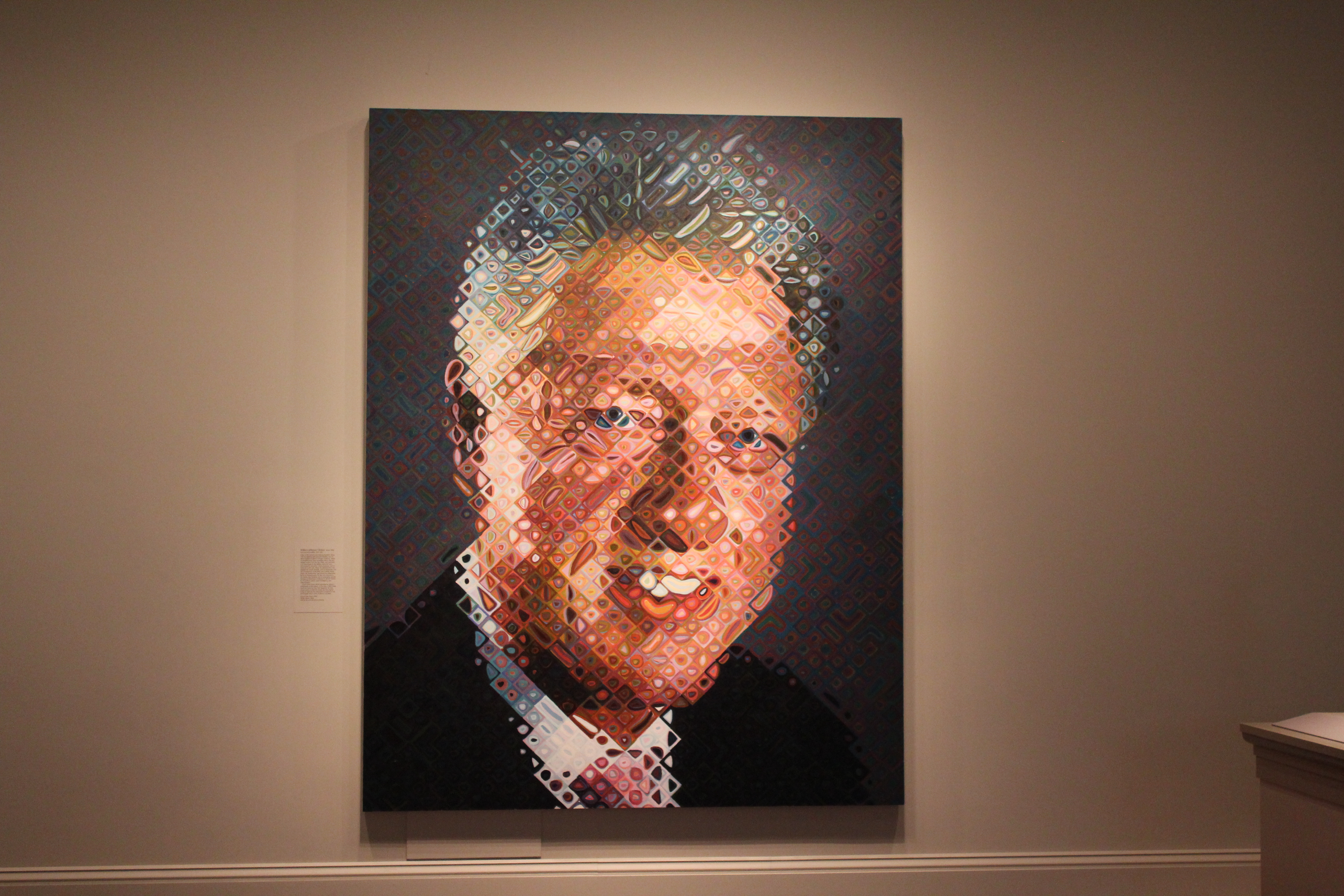Barack Obama
Shepard Fairey: „HOPE“, 2008
Barack Obama was not only the first US President who allowed his presidential bust to be modelled by a 3D printer, but he also inspired a veritable flood of works of art that tackle his personality from positions of admiration, skepticism, wondrous stylization or criticism. Shepard Fairey’s now iconic stencil “HOPE”, which was developed for the 2008 election campaign, is irrefutably the best known of these – and visualizes the hope that not only the artist placed in the man who was then still a presidential candidate.

Barack Obama 'Hope' Poster Designer Shepard Fairey, Image via huffingtonpost.co.uk
John F. Kennedy
Aaron Shikler: „The John F. Kennedy Official Portrait“, 1970
The official presidential portrait is traditionally produced at the end of each presidency, and Kennedy’s takes a unique place in the official ranks of former incumbents: Instead of extroverted self-assurance Aaron Shikler paints – at the request of Jackie Kennedy – a president in a thoughtful pose, his gaze directed downward. “I don’t want him to look the way everybody else makes him look, with the bags under his eyes and that penetrating gaze,” she purportedly said to Shikler beforehand.

Posthumous official presidential portrait of U.S. President John F. Kennedy, Aaron Shikler [Public domain], via Wikimedia Commons

Dwight David „Ike“ Eisenhower by David Humphrey, Image via tritongalleryllc.com
Dwight Eisenhower
David Humphrey: „Ike Paints From Life“, 2006
During painter David Humphrey’s early childhood, Dwight David “Ike” Eisenhower, the 34th President of the United States, who was in office from 1953 to 1961, was a noted presence on the TV screen. Like Humphrey’s father, Eisenhower also dabbled in art in his free time – and it’s in this mode that Humphrey depicts him in “Ike Paints From Life”, with his usual broad color palette and his almost Surrealist-psychedelic style.
Ronald Reagan
Peter Saul: „Ronald Reagan in Grenada“, 1984
Stylistically not dissimilar, Peter Saul’s work also takes its cue from political cartoons, underpinned by an aesthetic that continually hovers somewhere between Pop and grotesque. Saul also shares another symbiosis with Humphrey: Using oil on canvas, as early as the 1980s he was already making politics a theme of his art, as, for example, in “Ronald Reagan in Grenada”.

Donald Trump
Peter Saul, "Trump Thinks", 2017
“I felt I could, but the problem is, it’s such an acceptable thing now, to deal with politics. When I did it, it was completely against the art rules, so it was a lot of fun, but now, you have everybody disliking Trump”, Peter Saul is supposed to have said in an interview that took place before the US election. More recent events seem to have made him change his mind, as he has been working on the first sketches since the end of 2016.

Bill Clinton
Chuck Close: „President Bill Clinton“, 2006
Chuck Close created the large-format oil painting “President Bill Clinton” based on a portrait photograph that was taken in 2006 for the cover of New York Magazine. In doing so, Close deconstructed the original image of the former US President, broke it down in a grid, and then reassembled the modules using color – until he was able to recreate the Clinton charisma.

Bill Clinton by Chuck Close, Image via artsobserver.com
George W. Bush
Jonathan Yeo: „Bush“, 2007
Over the last two decades countless celebrities and political models have sat for British artist Jonathan Yeo. One of these was George W. Bush – or at least that was initially the official plan, which was ultimately called off. The portrait was created anyway, albeit somewhat differently to what the original patrons had in mind: For this, the first work in what became his “Porn Collage Series”, Yeo portrayed the then president in a collage made of paper fragments taken from porn magazines.

George W. Bush by Jonathan Yeo, Image via telegraph.co.uk
Abraham Lincoln & Barack Obama
Ron English: „Abraham Obama“
Obama – a second Abraham Lincoln? The public’s high expectations of Barack Obama are reflected in this portrait, in which Ron English merges the facial features of the 16th and 44th Presidents of the United States. English has reused the character of “Abraham Obama” again and again since 2008.

Abraham Obama by Ron English, Image via wikipedia.org
Richard Nixon
Pat Oliphant: „Richard Nixon victory salute“, 1994
The political cartoon is a firm fixture in American culture. Although times have changed just as have the techniques used, the genre remains true to its themes and motifs: the events and powerful figures of the time. Over the decades Pat Oliphant, whose works have won numerous awards including the Pulitzer Prize, has often depicted US Presidents in his drawings, with Clinton and Obama regularly featured alongside, most prominently, Richard Nixon in the context of the Watergate affair.

Richard Nixon by Pat Olpihant, Image via loc.gov/exhibits